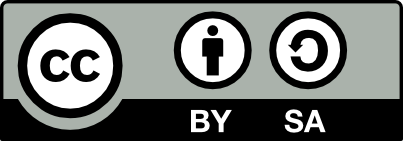Plagiarism Policy
Plagiarism refers to duplicating and copying the empirical data that is employed in the previously published work or intentional copying of others' work without proper acknowledgment.
Full Plagiarism: Previously published content without any changes to the text, idea, and grammar is considered full plagiarism. It involves presenting exact text from a source as one’s own.
Partial Plagiarism: If the content is a mixture from multiple different sources, where the author has extensively rephrased text, then it is known as partial plagiarism.
Self-Plagiarism: Self-plagiarism occurs when an author utilizes a large part of his/her own previously published work or reuses one’s own copyrighted material without using appropriate references. This can range from getting the same manuscript published in multiple journals to modifying a previously published manuscript with some new data. Complete self-plagiarism is a case when an author republishes their own previously published work in a new journal. The journal is strictly against any unethical act of copying or plagiarism in any form. Plagiarism is said to have occurred when larger portions of a manuscript have been copied from existing previously published resources.
International Journal of Zoology and Applied Biosciences (IJZAB) promotes the original work of its authors and follows a strict policy in case of plagiarism within its purview. The manuscript that is submitted is understood to be unpublished work and is not considered for publication elsewhere. Duplicate publication of the submitted manuscript in whole or in parts will be considered as a breach of plagiarism policy and is not appreciated by the journal. Plagiarism also essentially violates the laws of copyright and one’s original ideas, words and unique expressions are seriously ill-represented. The plagiarism is also extended to figures, tables, equations or illustrations, direct downloads from the internet without proper acknowledgment to the sources from which they are taken.
Policy and Action for Plagiarism (IJZAB)
The anti-plagiarism software is employed to check the originality of an article (TURNITIN). The submitted manuscript is checked for plagiarism before starting the review process. An article plagiarized more than 20% is immediately informed to the author. The communication author will be contacted for an explanation. If the author expresses ignorance or unawareness, the Editors may allow re-submission and the authors are warned as to the seriousness of plagiarism. However, the author is advised to provide proper citations for the referenced sources and resubmit the manuscript for publication without plagiarism.
IJZAB shall take serious action against published manuscripts found to contain plagiarism and shall completely remove them from the IJZAB website and other third-party websites, where the paper is listed and indexed.
Authors submitting to the “International Journal of Zoology and Applied Biosciences” sign the author form stating, among others, that this work is original and has not previously been published in full or substantial part thereof and, that no part of the article has been plagiarized from other published material.









